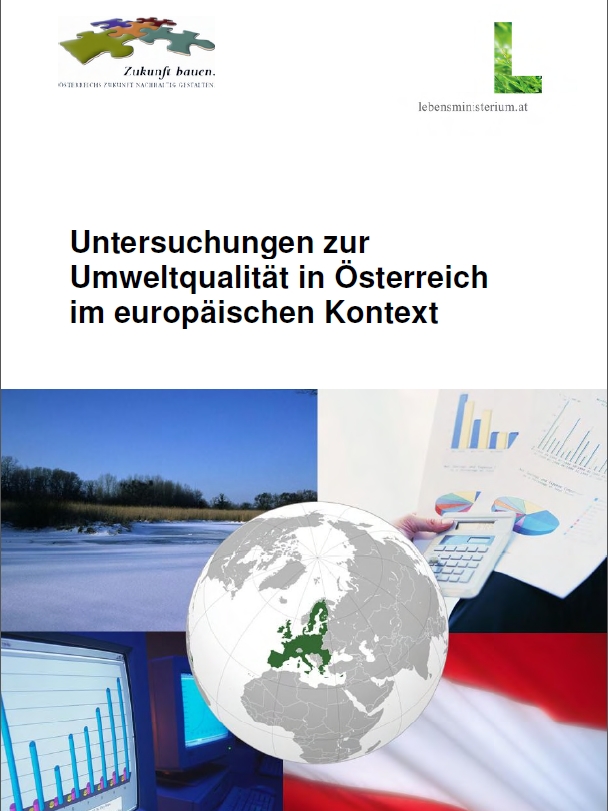Efficient economic and political decisions are dependent on the regular supply of reliable data. Indicators are a major source of such information and provide basic quantitative support for the elaboration and implementation of policies. In June 2008, Ecologic was commissioned to analyse the environmental situation of Austria in the context of the EU-27 Member States using selected environmental indictors and to identify sectors where additional effort is necessary to take a leading position among European countries.
Although the validity and comparability of many indicators are partially limited and the fact that a commonly accepted approach of all EU Member States for the analysis of the state of environment is the subject of discussion, the following points can be mentioned:
- Water: Although Austria is only in the top third for connections to sewage and drinking water infrastructure, its water quality is rated high. This is reflected both in Austria’s high bathing water quality as well as in the increasing improvement in the chemical quality of rivers (see also Art 5 report WFD).
- CO2 emissions and energy use: Per capita energy consumption in Austria lies in the bottom third of the ranking but Austria ranks at the top for share of renewable energy. Since consumption and CO2 emissions are connected, Austria’s output of greenhouse gas emissions per capita lies in the middle. While the population of Austria’s population has increased only slightly since 1995, its output of greenhouse gas emissions increased significantly.
- Waste: Waste generation in Austria is considerably higher than the EU average. However, Austria is ranked in third place for recycling and the amount of waste going to landfill is low compared to the rest of the EU. This means that the environmental pollution caused by waste in Austria is low.
- Agriculture and agriculture products: Organic products play a big role in Austria. Austria is one of the top three countries for sales of organic food as well as for the proportion of agriculture land under organic farming practices. This is probably also due to the high significance of the agri-environmental programmes in Austria.
- Transportation: In terms of freight traffic, Austria ranks in the middle. Despite difficult natural conditions (Alpine passes, few navigable waterways), still nearly one third of transportation is by rail, which has decreased the proportion of road transport. In terms of the ratio between rail, road and shipping Austria lies in fourth place. Also in terms of passenger kilometres driven, Austria ranks in the middle compared to the rest of Europe. The average Austrian drives around 10,000 kilometres per year (in 2003).
The findings of the study were published by the Austrian Federal Ministry of Agriculture, Forestry, Environment and Water Management (BMLFUW) in the brochure "Untersuchungen zur Umweltqualität in Österreich im europäischen Kontext".






